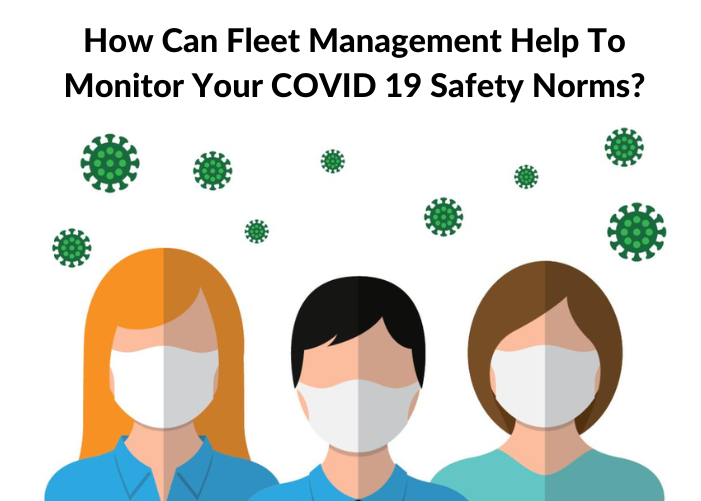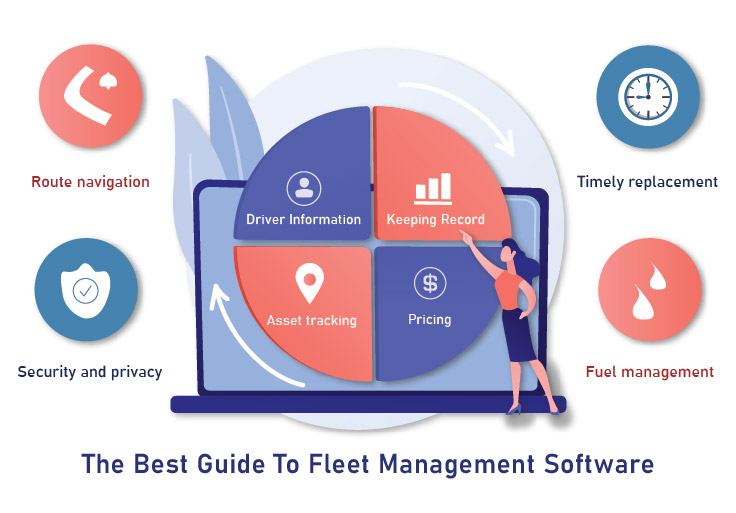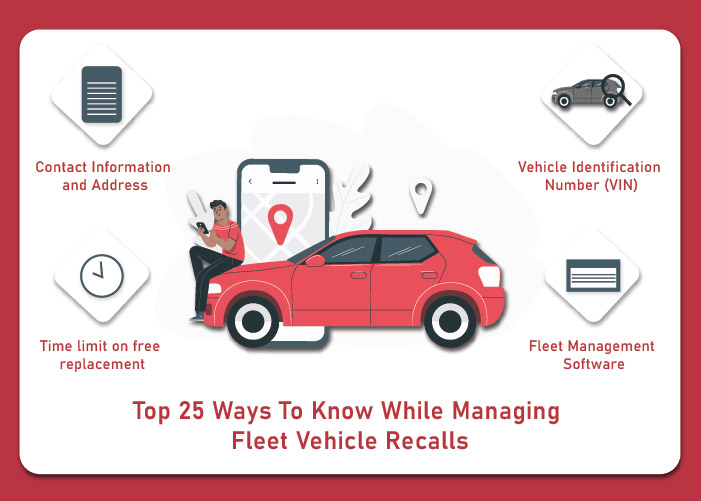Executive Summary
Fleet Crews such as drivers and vehicle operators don’t have the luxury of being migrated to “Work-from-Home” models! They are out there on the beat, batting the forces of nature. And, like all other Front-Line Workers, they clock long working hours under stressful environments.
It is the moral obligation of Logistics and Transport Managers to make sure that they not only establish Covid-safe practices but also train, support and help their Fleet Crew in implementing and following these Covid safety norms.
Following robust Covid-safety practices will help protect the Fleet Crew, their loved ones, and the communities and society that they live and work in.
Firstly, stay informed, stay aware!
Logistics and Supply Chain firms are responsible for their Fleets, who, are at the Front-Line of the Covid19 battle. For several workers, their “company vehicle” is their place of work.
Therefore, as a Fleet Manager, it is your responsibility to lower – to eliminate – possible infections among your fleet crew as well as those that they come in contact with. Therefore, not only do you need to stay completely updated on government policies and recommendations on how to tackle this pandemic but must also embed these recommendations into your fleet management.
Fleet Managers and Fleet Crew have hardly ever been in the “work-from-home” category and aren’t used to managing daily operations remotely! Wherever possible, however, set your team (and yourself) up to work remotely and stay proactive – you’d be able to do this efficiently by using modern fleet management software to efficiently manage operations and view fleet data in real time.
By following best practices – and, being stringent wherever needed – fleet managers can minimize the chances of infection and keep their employees safe.
Fleet Management: Best Practices To Monitor Covid-19 Safety Norms
Let’s start by getting an overview of best practice behavior that fleet drivers and operators must follow.
1) Educate Fleet Crew
- Fleet policy guidance: Transport Managers are responsible for their fleet crew more than ever – not only do you need to enlist Covid safe protocols but also make sure that you communicate this directly to your team members
- Be reachable: this is an unforeseen situation like never before. Be available to address any questions and concerns that your fleet members will likely have. Two-way communication is a must
2) Reduced Customer Interactions:
- To reduce proximity and contact, several fleet management companies have stopped asking customers to sign on bills/invoices. Instead, the fleet operator or driver signs on their behalf
3) Limiting Vehicle Occupancy:
- Breaking the transmission is key. Fleets have temporarily limited the number of occupants in a vehicle. Eg If there are two passengers in a vehicle, they split driver-passenger in front-back for distancing
__________________________________________________________________________________________
Drivers: Covid19 Safety Protocol
- Establish a regular cleaning program. Clean before and after a shift. Pay special attention to cleaning shared vehicles. Supervisor must sign-off on completion
- Be diligent about sanitizing vehicles
- Common surfaces: wash with hot water, strong alcohol-based cleaning solution
- Clean handles, mirrors, windows, doors, tools, switches, buttons, touchpads. Use specialized electronics cleaners where needed
- Launder the linen seats, curtains. Wash the mats ______________________________________________________________________________________
4) Service Providers:
- Fleet managers have reduced driver interaction at service centers by adopting mobile fleet service providers so that they needn’t take vehicles to a garage
5) Personal Hygiene:
- Sanitation is a life saver! Drivers and operators must sanitize their hands after each trip, or, even after interaction with others during a trip
- Encourage drivers to sanitize all commonly used surfaces multiple times a day. Fleet Managers have mandated periodical (eg hourly) cleanings to keep things clean
- Maintain respiratory etiquette: cover up coughs, sneezes to prevent spreading on surfaces, others
- Fueling: keypads (credit card swipes, odometer input), fuel cards – all surfaces touched must be wiped down
6) Pool Vehicle Sanitation:
- The virus can often survive 72 hours on surfaces if the surface is not cleaned. Drivers must sanitize every spot & surface touched – while entering, when returning it
______________________________________________________________________________________
Fleet Managers: Covid19 Safety Protocol
- Maintain all applicable govt. regulations, public health guidelines
- Implement “Social Distancing” wherever possible: use separate vehicles, reduce vehicle occupancy, stop pool vehicles, use work-shifts to reduce overlap
- Supervise mandated fleet-related safety measures
- Document vehicle cleaning —a vehicle viewed as “infected” will be idle till properly cleaned and aired out
- Remove “stigma of infection” via communication & team spirit
- Provide cleaning equipment (sanitizers, sprays, wipes, disinfectants) in visible & accessible places
- Identify rest areas, fuel stations, hotels, eateries to ensure such facilities are functional and adhere to recommended COVID-19 guidelines like contactless payment, food service, cleaning, private restrooms, showers, etc.
______________________________________________________________________________________
7) Tools and Equipment:
- What needs be done, must be done: firms have mandated that workers mustn’t use others’ desks, offices, phones, computers, work tools, equipment (etc). However, management must also provide suitable options so that there isn’t any confusion
- Fleet crew must be instructed to periodically clean their tools and equipment in addition to vehicles
- Disposable gloves are great: use and discard is a safe practice
8) Workspace Ventilation:
- Given the (increased) importance of ventilation, many companies have opted for increased frequency of replacing workspace cabin filters ie more often than regular maintenance schedules demand
“Template” the desired safety behaviour
A lot of the best practices and Covid19 safety behaviour includes activities that are “every day, mundane” actions, that, we repeatedly do during our daily lives and without any thought at all. However, the Covid19 situation has suddenly brought all such daily activities under the scanner due to the risk now attached to anything touched in common, anything requiring proximity of people. Therefore, companies have created a “Template” for Covid19 behavior. This template includes instructions & guidelines to ensure your fleet management and operators follow policies to stay safe, and minimize the risk of spread in community.
Fleet Drivers & Operators: safeguard your precious Front-Line Workers
As mentioned earlier, company fleet drivers and vehicle operators do difficult and physically exhausting jobs under prolonged shifts and often battle extreme forces of weather and nature. Under the Covid19 situation, while many jobs and tasks have been re-constructed and re-worked to use the Work-from-Home model, fleet operators and drivers do not have that benefit. They are out there on the daily beat, executing their daily tasks, putting themselves at risk as Front-Line Workers…
Under such a scenario, logistics companies and fleet management teams must take responsibility for providing a safe work environment and safety protocol for their drivers and fleet operators. Mental and physical fatigue is often the reason to “become slack in the following routine” – Transport Managers must be mindful of the workload for their crew especially in current times of limited crew availability.
GPS-enabled Fleet Management Software: helps maintain Covid19 safety norms.
A cloud-based, GPS enabled Fleet Tracking Software is a great modern tech tool for Fleet Management. It sits on a centralized Cloud-Server, and its communication tools like notifications, pop-ups, notes, emergency contacts (etc) can easily be integrated into existing company systems and used to communicate with the crew – whether onsite or out in the field.
Conclusion: Fleet Managers are directly responsible for the safety of their Fleet Crew, especially those that are out on the beat. They must use all tools and methods available to ensure their well-being.




